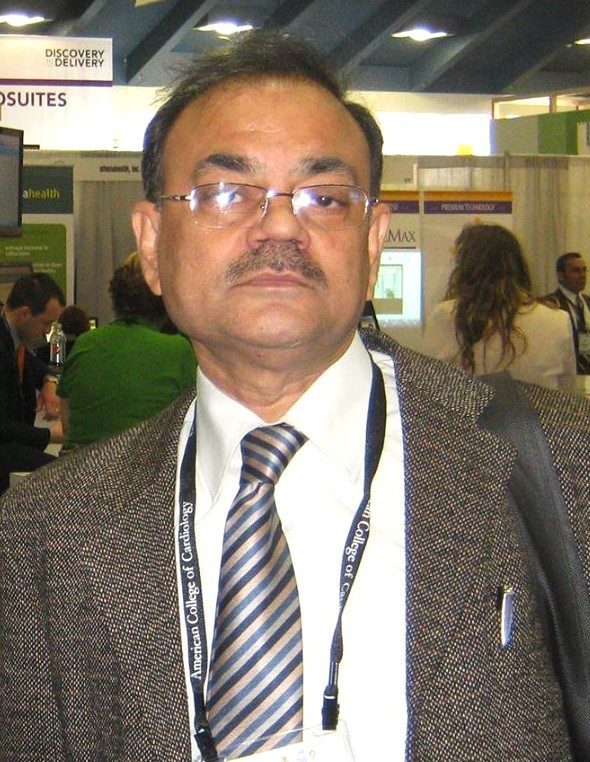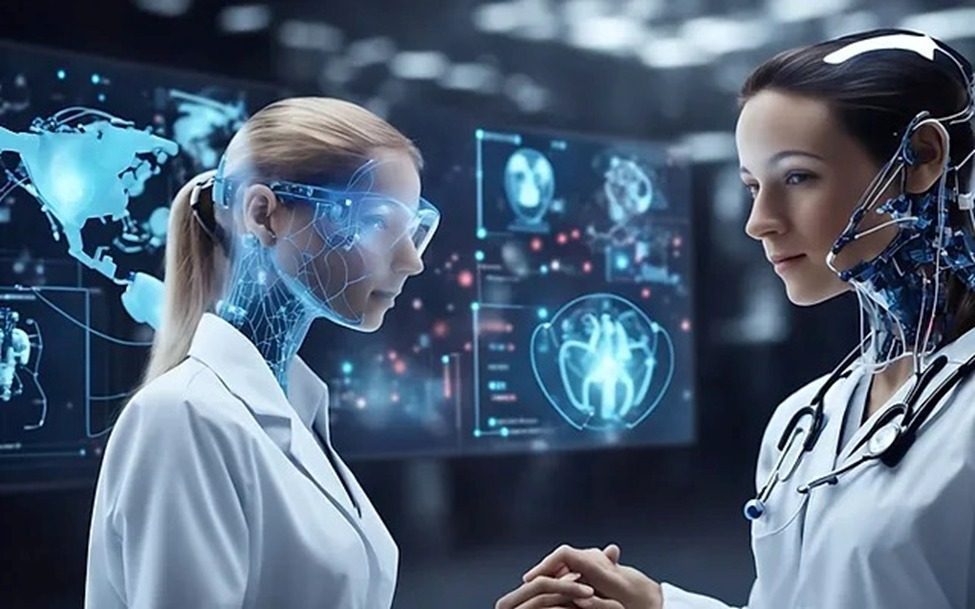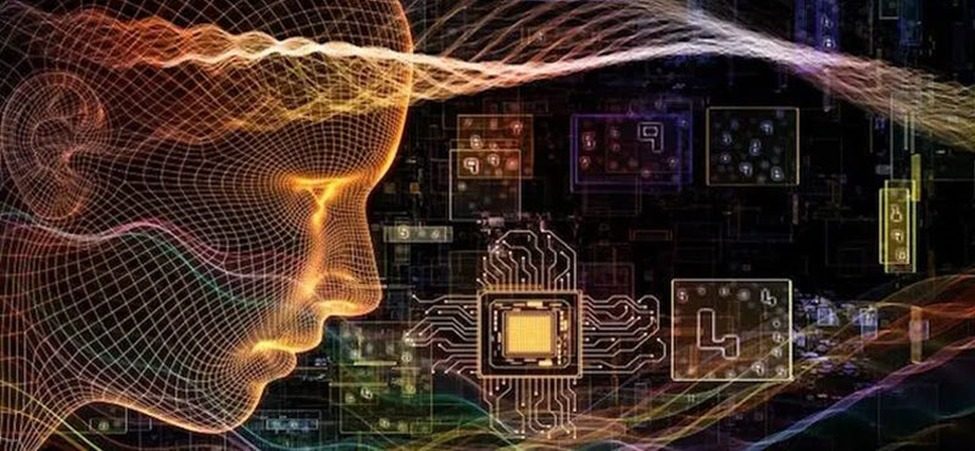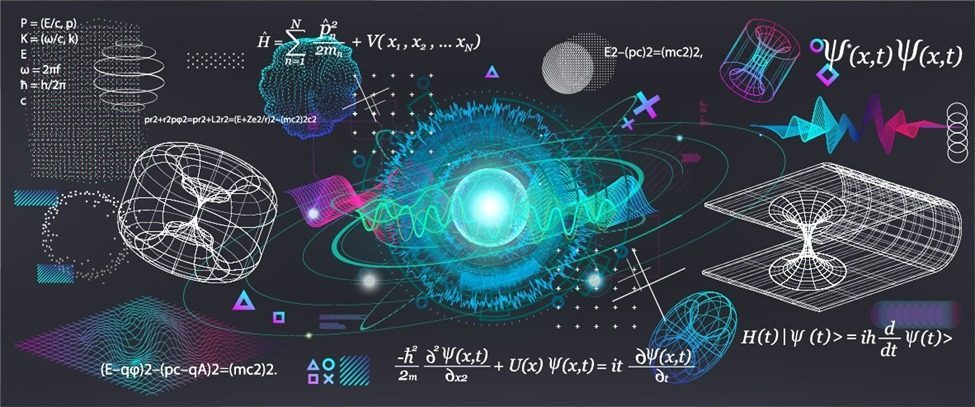
By Dr. Muhammad Akram Sultan
In the changing landscape of modern times, artificial intelligence is emerging as a ray of hope that could revolutionize the way we approach medical diagnosis and treatment. Artificial intelligence is a technological creation where a human intelligence-like ability can be created by a computer or machine, advancing medical research and other skills. When used with a quantum computer, incredible advances are possible in all areas of life. The traditional medical culture is rapidly changing with the help of new artificial intelligence technology, and the results will soon be visible in treatment, veterinary medicine, human medicine, and other fields. The use of artificial intelligence is proving to be very useful in the medical world, as seen with radiology, pathology, endoscopy, and surgery, where the diagnosis of diseases has started to be promoted with a high level of accuracy and minimal human involvement. Similarly, this unique creation is being used in the modern and effective preparation of medicines, alongside research on humans and all kinds of animals.

In the 1950s, Alan Turing, famous as the father of artificial intelligence, revealed that artificial intelligence is more complex than the human brain, yet one of the most advanced scientific possibilities. Recently, the founder of Microsoft, Bill Gates, declared the year 2024 as the year of artificial intelligence, marking a modern development after traditional computers, supercomputers, and modern mobile phones. If research, treatment, and drug development continue at this pace, new horizons will be revealed, propelling medical treatment to new heights in human society. The combination of AI and high-speed quantum computers is seen to be taking hold of the world, particularly in medicine, where the need for AI compatibility in traditional methods is more impressive and deeper than in other fields. This combination enables better, faster, and more accurate medical diagnoses, such as the early detection of diseases in bones, joints, eyeballs, and retinas, among other areas.
Along with saving time and increasing productivity, artificial intelligence also enhances the efficiency and diagnostic potential of radiology (X-ray/ultrasound/MRI) by addressing their more complex dimensions. In Pakistan and around the world, artificial intelligence has enabled more in-depth diagnoses of different spots in X-rays for TB, breast cancer, and other types of cancer. The international shortage of experts in radiology is another problem, but online inspection reporting is becoming popular, allowing experts to earn money by doing online reports from home. When radiology and pathology combine their validation and inspection processes, the result is a more skillful diagnosis in less time. In pathology, cancer and its various types of cellular changes are seen with better microscopic images.

The review shows that combining quantum computers and artificial intelligence in chronic and complex diseases of the intestines, kidneys, lungs, and brain can lead to significant progress. AI-assisted endoscopy of benign and malignant tumors of the intestine, alimentary tract, and bowel examination provides better diagnostic imaging than conventional endoscopy for both diagnostic imaging and treatment planning. The advanced scope will be helpful with less time and more expertise, positioning artificial intelligence as a valuable companion to invasive gastroenterologists, orthopedic surgeons, vascular surgeons, spine and reproductive surgeons, and cancer surgeons. Complete guidance can be obtained, while organic bioengineering can be used in technologically efficient organs such as the replacement of heart valves. In pre-surgical anesthesia, artificial intelligence can enhance supervision, support, control of medication duration and amount, prediction of adverse effects, reduction of pain during operations, administrative control of the operating theater, recovery from anesthesia, and post-surgical recovery up to discharge time.
Medicinal medicine and pharmaceutical manufacturing is an ancient art. From traditional medical treatment in Chinese and Indian civilization and Islamic history to nutraceuticals, homeopathic, allopathic, and new types of medicine, if artificial intelligence is integrated, there will be less time and fuller expertise in research, clinical trials, drug marketing, and managing drug side effects. Combining AI with traditional drug production methods has led to tremendous creativity and innovation, facilitating the development of anti-cancer drugs and vaccines at a lower cost and in a shorter time with higher efficacy. Scientific technology and artificial intelligence have significantly contributed to the development of the Corona vaccine. Similarly, AI has made progress in creating extremely small molecules or nanoparticles, which are the size of a single cell. For example, the thickness of one millimeter to one million nanometers has come into existence. Layering different levels of nanoparticles in various drugs through 3D printing, followed by final chemical coating and determining the release time and speed, will greatly expand therapeutic efficacy.

Suggestions for medical education and professional development:
If we examine the history of development, we see the revolution of steam, followed by electricity, and now the revolution of science and technology reaching new heights, introducing artificial intelligence. Integrating this scientific development with medical research and education is a great opportunity for our country to earn foreign exchange and gain a new status in the world. For example, medical education in our neighboring country, India, is compared to that of the United States and other developed countries, resulting in a significant number of Indian doctors and paramedics in developed countries today. These experts are taking over health systems and their numbers are increasing day by day. While Pakistani medical experts and paramedics are also present, Indian medical experts are covering the entire health system in America, England, the Gulf, and other developed countries.
For treatment and surgery, after America, England, Singapore, and Dubai, India is now number one due to its rapid development in the medical and health sector, offering low-cost and excellent treatment with SOPs and organ transplants. Despite still using traditional and village prescriptions in India, the new generation is advancing rapidly through a combination of scientific advancements, including software, digital marketing, digital intelligence, artificial intelligence, and quantum computers, highlighting the country’s name in the developing world. This progress is achievable for Pakistan as well, but it requires true dedication and effective guidance.
A quantum computer can accomplish in minutes what a supercomputer would take years to do, and applying artificial intelligence to it can enable years of complex work to be done in minutes. Given that intermediate quantum computers will soon be commercially available, if we do not develop this scientific technology from the early stages in medical education and pioneering skills with modern teaching tools and curricula, our untrained workforce will be obsolete. Our national population includes a 240 million youth workforce, with 50 to 60 percent below the age of 35. Training this large segment in modern technology, especially artificial intelligence, according to current needs, can help us make a place in the new revolutionary world while earning a good exchange rate. The following suggestions are proposed:
- Education of computer and software along with AI should be made an integral part of the primary curriculum.
- Children should be selected for medical education according to their inclinations at the discretion of teachers in secondary schools. The individual ability of each student is unique; if children choose their field in secondary school with the help of teachers, they can excel in it.
- Training should be provided in operating modern equipment such as ultrasound, echo, MRI, and CT scans to equip students with skills and training in modern computers and artificial intelligence technology.
- Instead of traditional methods of doctoring and teaching books for medical education, specialization decisions should be made from the beginning.
- Medical education should be aligned with international standards, and modern scientific technology should be combined with education in therapeutics and medicines.
- PMDC and DRAP should be constituted in every province with modern technology and international training and observation experience.
- PMDC, DRAP, and HEC of each province should be equipped with modern technology.
- Education, especially in artificial intelligence, should be a priority for our country’s leaders to ensure a bright future.
- Real medical data, integrated with NADRA, can be used to predict diseases and outbreaks through artificial intelligence, enabling timely preventive measures.
An intellectual forum consisting of the best minds in the country should be formed to devise a mechanism for accessing the latest scientific technology information for educational institutions. To implement these suggestions, investment in education, health, and technology in Pakistan is essential.
(The writer is one of the top Cardiologists, serving at various capacity in government and private organizations, can be reached at news@metro-morning.com)



